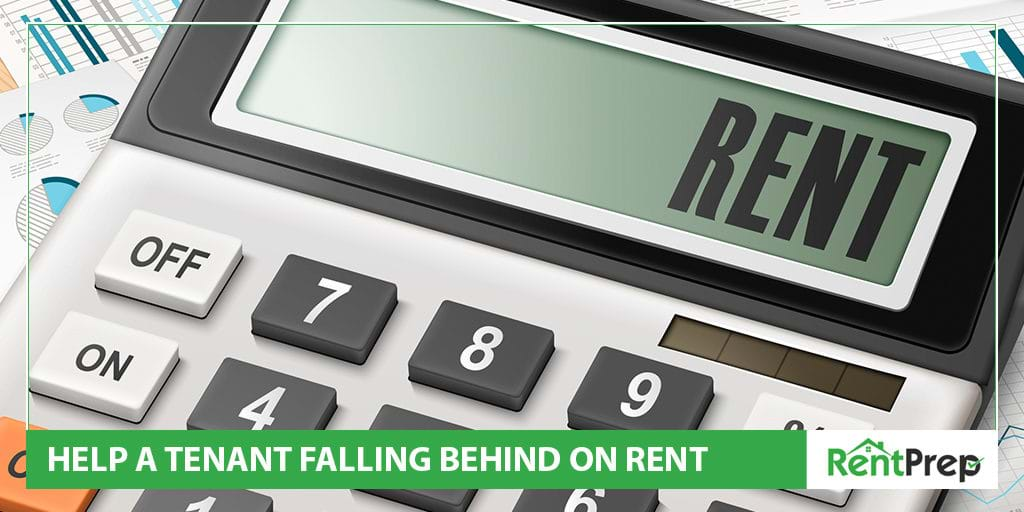
For a landlord, there are few things worse than a tenant starting to fall behind on rent. Unfortunately, that scenario comes to life too often for comfort.
When a tenant that you believe to be a good and generally reliable person begins to fall behind on rent, deciding what to do next can be confusing. There are landlords that would move straight to eviction proceedings, but not everyone will want to jump to that end immediately.
In most cases, it will be more beneficial to you to find a way to keep the tenant in your property for the lease period. Evictions are expensive, and keeping a tenant that was previously reliable is likely to play out better in the end.
How can you help tenants falling behind on rent to catch up and stay on track? While you don’t have an obligation to do so as a landlord, learning from these tips can help you become a more compassionate, well-liked, and even profitable landlord.
A Table Of Contents For Helping Tenants With Rent
- Starting Notes
- Connect Them With Emergency Organizations
- Reduced Payments
- Talk It Out
- Repayment Deal
- Help Their Finances
- If All Else Fails
Starting Notes
Before we get into these tips and tricks, however, we want to mention that you need to be smart about when you try to help tenants stay in one of your properties.
If a tenant has been a great tenant and suddenly fell on hardship through a family loss, lost job, or another emergency situation, that’s a great time to step in and help. If, however, this is the fourth time that a tenant has been late with their for various reasons, it’s probably time to stop trying to help them and move toward eviction.
Today, we’re focusing on how to help the good tenants, the ones that you enjoy working with and hope can get things turned around. Tenants that cause headaches might not be worth the time investment, but that is up to you to decide.
1. Connect Them With Emergency Organizations

If your tenant isn’t able to pay rent on time because of a sudden hardship, job loss, or another unique situation, there is a good chance that a charity or non-profit organization out there might be able to help them.
Share resources with your tenant that might help them to find one of these organizations. Typically, the tenant will need to gather up documentation such as their lease agreement, pay stubs, bank statements, and any assistance they research to show their situation.
With luck, an organization will be able to help them cover their back-payments so that they can begin paying you on time in the coming months. Plus, these resources might also be able to help them set up a better plan for their future so that this issue will not repeat itself.
2. Reduced Payments
One way to help tenants catch up is to offer them a reduced rental schedule for a temporary amount of time. This is something that only you can decide if you are able to financially handle, and it should only be used in particular situations.
For example, let’s say that a tenant lost their job, and they call you in advance to let you know that rent might be a struggle for them this month. They found a new job, but the pay is lower. They are willing to move out but would prefer to do so at the end of the lease term. You could offer them a slight rental reduction if it would make the price affordable.
The key here is that communicating with the tenant is the only way for this type of situation to work! By understanding their situation, you can understand what you can offer. Remember, some rent is better than none in many cases where you want to avoid eviction.
3. Talk It Out

Another option is to simply talk it out with your tenant. If they’re falling behind on rent and you haven’t yet evicted them, the tenant might not realize how serious the situation is until you sit down with them. Let them know clearly that you will move for eviction by a specific date unless some progress is made.
Often, this type of conversation with well-meaning but with irresponsible tenants it will help them learn some maturity and budgeting skills. With the right encouragement, they can find a way to adjust their budgeting and make payments happen.
4. Repayment Deal
In some cases, a tenant is able to pay their rent going forward with no problem, but they fell behind and missed a previous payment that they just can’t seem to catch up. In this case, setting up a repayment deal can be a great solution.
This type of deal works something like this:
- The tenant will continue to pay the full amount of rent on time.
- Every month for a set period, they will pay a percentage of the amount of back rent owed.
- A signed contract between both parties will outline the repayment plan.
This plan allows a struggling tenant to continue to pay their monthly rent on time while also working at decreasing the money they owe you. This is usually the best solution when it can be achieved as it keeps all parties in a profitable yet comfortable situation.
5. Help Their Finances
One final thing that you can do is to set a struggling tenant up with a good financial advisor that you might know, particularly if you have a favor that you can call in for them.
While we don’t recommend giving your tenants any direct financial advice, it can be beneficial for them to learn about ways to free up their cash flow that they might not know about:
- Pausing student loan payments
- Lowering credit card minimum monthly payments
- Taking out a small, private loan
- Consolidating loans to improve interest rates
All of these small changes can free up a lot of money each month, and a financial advisor would be able to help your tenant do just that. If an advisor isn’t accessible, point them to online resources that may have this type of information available.
If All Else Fails
No landlord wants to see a well-liked tenant be evicted, and no landlord really likes to go through the eviction process, either. Turning around a property can be expensive and time-consuming, but it can also be necessary.
Sometimes tenants will never catch up, and they’ll fall behind even after you’ve tried to help them. At that point, it will be time to move forward with standard eviction proceedings to ensure that you don’t lose out on your investment anymore than you already have.

